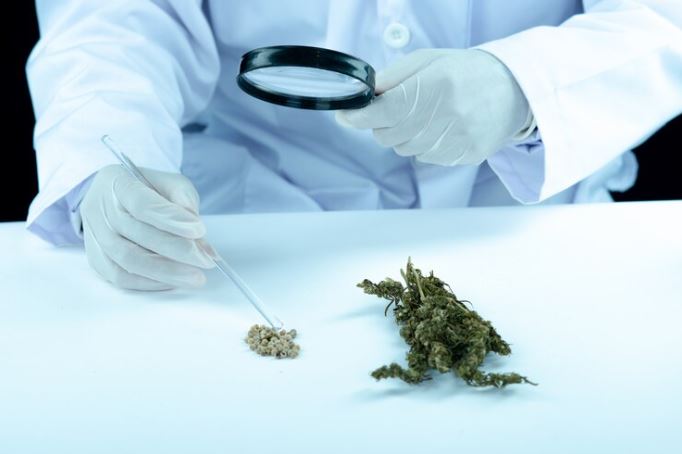ROHS Compliance Testing Lab in Gurugram, India

In today’s industrial landscape, ensuring product safety and minimizing environmental impact is crucial. With growing concerns about hazardous substances and their effects on human health and the environment, regulations such as the Restriction of Hazardous Substances (ROHS) have become essential. ROHS compliance testing is vital for companies that manufacture or distribute electronic products to confirm they meet these stringent standards. This article explores the importance of a ROHS compliance testing lab, the testing process, and its significance for businesses and consumers alike.
What is ROHS Compliance?
ROHS (Restriction of Hazardous Substances) is a European Union directive that restricts the use of specific hazardous materials in the manufacture of electrical and electronic equipment (EEE). First introduced in 2003, the directive aims to reduce environmental pollution and ensure that electronics are safe for consumers. It initially targeted six hazardous substances: lead, mercury, cadmium, hexavalent chromium, polybrominated biphenyls (PBB), and polybrominated diphenyl ethers (PBDE). Over time, the list of restricted substances has expanded to include more harmful chemicals.
Companies that fail to comply with ROHS regulations can face hefty fines, legal actions, and product recalls, which can severely damage their reputation. Thus, it is crucial for manufacturers to ensure their products meet the standards set out in the ROHS directive through proper testing.
Why ROHS Compliance Testing is Important
ROHS compliance is not just a legal requirement for companies selling electrical and electronic equipment in the EU market; it also reflects a company’s commitment to environmental sustainability and product safety. Consumers today are increasingly conscious of the impact that products have on the environment and their health. Companies that adhere to ROHS demonstrate their dedication to reducing harmful environmental impacts and protecting public health.
Here are some key reasons why ROHS compliance testing is important:
1. Ensures Product Safety
ROHS compliance testing ensures that products are safe for consumers. Hazardous substances such as lead and mercury pose significant health risks. By limiting the use of these harmful materials, ROHS-compliant products reduce the risk of exposure to toxic substances.
2. Environmental Protection
ROHS plays a significant role in reducing environmental pollution. Many restricted substances are toxic and can accumulate in landfills, eventually contaminating soil and water sources. Compliance with ROHS helps prevent environmental degradation by controlling the presence of harmful chemicals.
3. Market Access
Companies wishing to sell their products in the European Union must comply with ROHS regulations. Products that do not meet ROHS standards are barred from entering the EU market. This regulation is also being adopted by many countries outside of the EU, meaning that compliance with ROHS opens up global market opportunities.
4. Reputation and Brand Value
Consumers and stakeholders expect companies to prioritize safety and sustainability. ROHS compliance can enhance a brand’s reputation by showing a commitment to producing environmentally friendly and safe products. Conversely, non-compliance can result in significant reputational damage and loss of consumer trust.
The Role of a ROHS Compliance Testing Lab
A ROHS compliance testing lab is essential for ensuring that products meet the stringent requirements set by the ROHS directive. These specialized labs have the expertise and equipment necessary to test products for the presence of restricted substances. Testing typically involves analyzing various components of electronic devices, such as circuit boards, solder joints, cables, and plastic casings.
Key Steps in ROHS Compliance Testing
- Sample Preparation: The testing process begins with collecting product samples. These samples are prepared carefully to ensure accurate results. Depending on the product’s complexity, different components may need separation for individual testing.
- Chemical Analysis: After preparation, the samples undergo chemical analysis. Advanced techniques such as X-ray fluorescence (XRF) spectroscopy, gas chromatography-mass spectrometry (GC-MS), and inductively coupled plasma mass spectrometry (ICP-MS) detect and quantify restricted substances.
- Comparison with ROHS Limits: Analysts compare the results from chemical analysis with the permissible limits set by the ROHS directive. If the levels of any restricted substance exceed these limits, the product is deemed non-compliant.
- Compliance Report: The lab generates a comprehensive report detailing the testing results and confirming whether the product complies with the ROHS directive. This report serves as proof of compliance for manufacturers.
Why Choose a Professional ROHS Compliance Testing Lab?
Partnering with a professional ROHS compliance testing lab ensures the accuracy and reliability of testing results. Qualified labs use state-of-the-art equipment and employ experts who understand the complexities of chemical testing and regulatory compliance. By choosing a qualified lab, companies can be confident that their products will meet necessary standards.
Professional labs also provide guidance and support throughout the testing process. They help companies interpret testing results, advise on corrective actions if non-compliance occurs, and offer recommendations for future product development to ensure ongoing compliance.
Conclusion
ROHS compliance is a crucial consideration for manufacturers and distributors of electrical and electronic equipment. With increasing regulations surrounding the use of hazardous substances, ensuring compliance is not just a legal obligation but also a demonstration of a company’s commitment to sustainability and safety. Partnering with a ROHS compliance testing lab is essential for accurate and reliable testing, ensuring that products meet the highest standards of safety and environmental responsibility.
As industries continue to evolve and regulatory standards become more stringent, ROHS compliance testing will remain a critical component in producing safe and environmentally friendly products. For manufacturers, investing in proper testing is not only a legal obligation but also a step towards creating a more sustainable future for all.
Credit: https://www.hituponviews.com/








